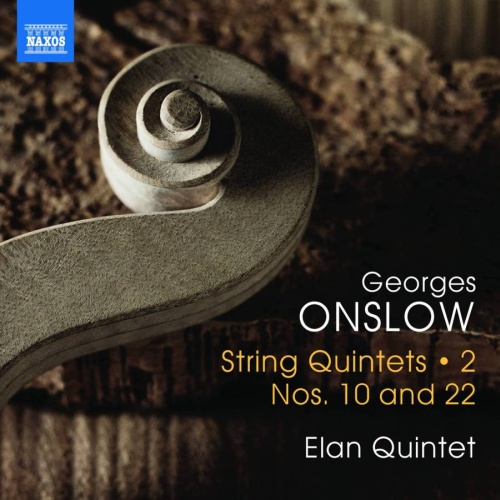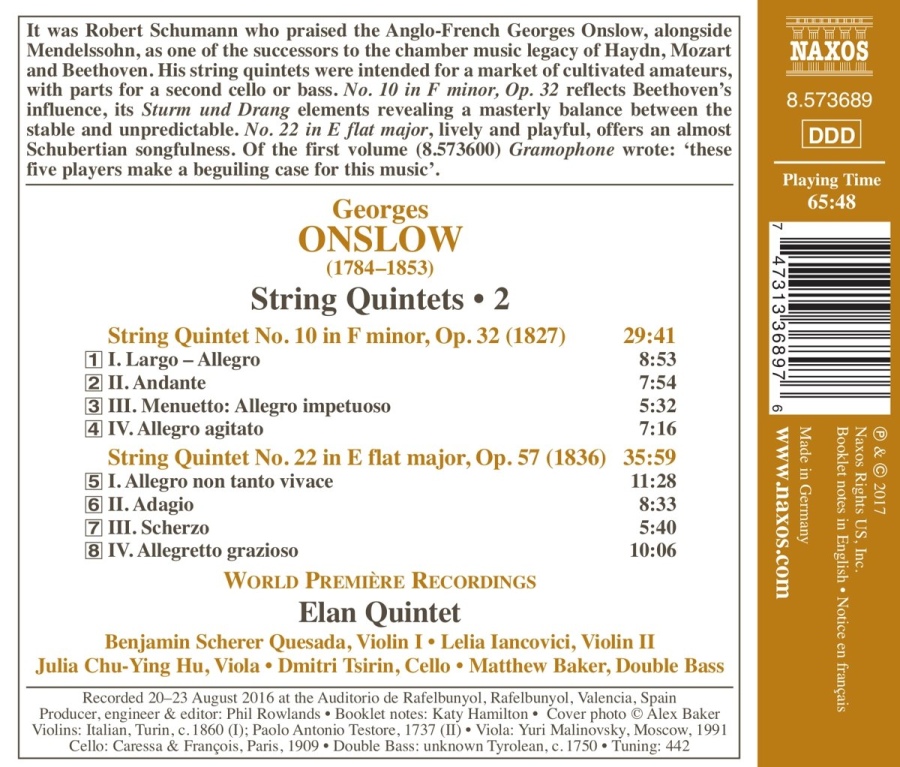
kompozytor
Onslow, Georges
tytuł
Onslow: String Quintets Vol. 2
wykonawcy
Elan Quintet
nr katalogowy
8.573689
opis
It was Robert Schumann who praised the Anglo-French Georges Onslow, alongside Mendelssohn, as one of the successors to the chamber music legacy of Haydn, Mozart and Beethoven. His string quintets were intended for a market of cultivated amateurs, with parts for a second cello or bass. No. 10 in F minor, Op. 32 reflects Beethoven’s influence, its Sturm und Drang elements revealing a masterly balance between the stable and unpredictable. No. 22 in E flat major, lively and playful, offers an almost Schubertian songfulness. Of the first volume (8.573600) Gramophone wrote: ‘these five players make a beguiling case for this music’.
nośnik
CD
gatunek
Muzyka klasyczna
producent
Naxos
data wydania
05-09-2017
EAN / kod kreskowy
0747313368976

(Produkt nie został jeszcze oceniony)
cena 58,00 zł
lubProdukt dostepny w niewielkiej ilości.
Wysyłka w ciągu 3 dni roboczych
Darmowa wysyłka dla zamówień powyżej 300 zł!
Darmowy kurier dla zamówień powyżej 500 zł!
sprawdź koszty wysyłki





























